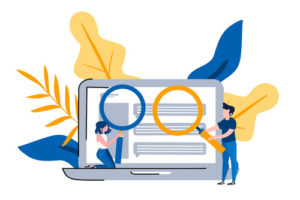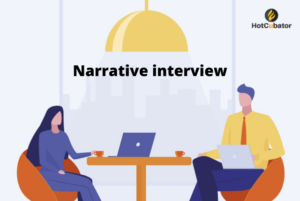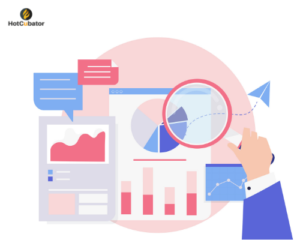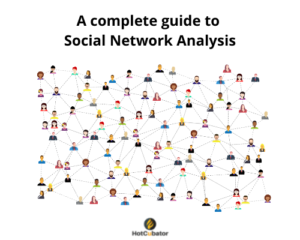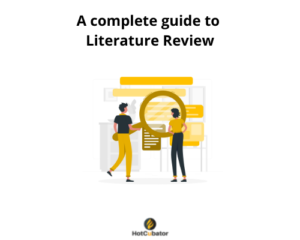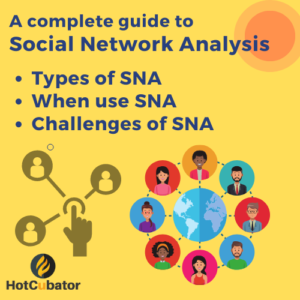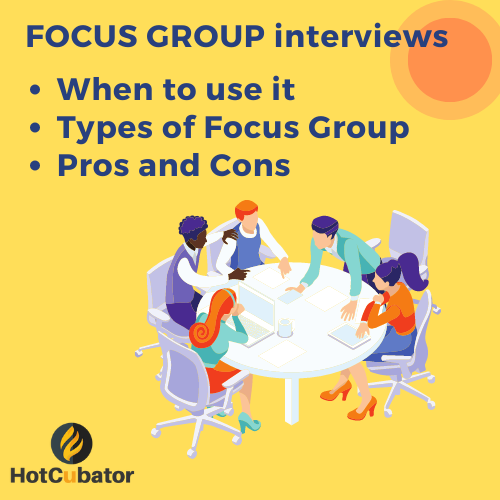
A focus group interview is a qualitative research method that is used to gather data from a small group of people about a specific topic or issue. It is a facilitated discussion among a group of people, usually 8-12 participants, who are selected and brought together to discuss a specific topic or product. They are conducted in a moderated setting and the discussion is usually recorded so that the information can be transcribed and analysed later.
Focus group interviews are useful in many research fields, such as – market research, social sciences, healthcare, and education. They can be used to explore the attitudes and perceptions of a group of people about a specific topic or issue, identify problems and solutions, generate new ideas, evaluate programs and interventions, and understand group dynamics.
Types of focus group interviews
There are several different types of focus group interviews, including:
- Traditional focus groups: This type of focus group interview is the most common and involves a group of individuals coming together to discuss a specific topic or issue in a moderated setting. The moderator guides the discussion, and the group’s interactions and responses are recorded and analysed.
- Mini-groups: This type of focus group interview involves smaller groups of individuals, usually 4-6 people, who come together to discuss a specific topic or issue. Mini-groups are useful when a smaller sample size is needed or when the topic of discussion is sensitive.
- Dual-moderator focus groups: This type of focus group interview involves two moderators working together to guide the discussion. One moderator focuses on the group dynamics, while the other focuses on the content of the discussion. This type of focus group is useful for complex topics or when the group is diverse in terms of background or perspective.
- Online focus groups: This type of focus group interview involves individuals coming together online, rather than in-person, to discuss a specific topic or issue. Online focus groups can be useful for reaching individuals who are geographically dispersed or for sensitive topics that participants may not want to discuss in-person.
- Ethnographic focus groups: This type of focus group interview involves individuals coming together to discuss a specific topic or issue in the context of their everyday lives or experiences. Ethnographic focus groups can be useful for understanding how individuals experience or interpret a topic or issue in the context of their culture or community.
- Homogenous focus groups: This type of focus group interview involves individuals coming together who share similar characteristics such as age, gender, education, occupation etc. Homogenous focus groups are useful when the researcher wants to study a specific sub-group within a population.
These are some of the main types of focus group interviews, and researchers may use a combination of these types or adapt them to suit the specific needs of their study.
When to use Focus group interviews:
Depending on the research question, there could be a variety of settings when a focus group method could be applied. Here are some scenarios when using focus group can elicit richer insights from the intended participants:
- Exploring attitudes and perceptions: Focus group interviews can be used to explore the attitudes and perceptions of a group of people about a specific topic or issue. For example, a researcher might use focus group interviews to explore the attitudes of consumers towards a new product or service.
- Identifying problems and solutions: Focus group interviews can be used to identify problems and solutions related to a specific topic or issue. For example, a researcher might use focus group interviews to identify problems and solutions related to patient satisfaction in a hospital setting.
- Generating new ideas: Focus group interviews can be used to generate new ideas and to gather feedback on existing ideas. For example, a researcher might use focus group interviews to generate new ideas for a marketing campaign or to gather feedback on a proposed policy change.
- Evaluating programs and interventions: Focus group interviews can be used to evaluate programs and interventions by gathering feedback from the participants. For example, a researcher might use focus group interviews to evaluate a new educational program by gathering feedback from the students and teachers.
- Understanding group dynamics: Focus group interviews can be used to understand the dynamics within a group of people and how they interact with each other. For example, a researcher might use focus group interviews to understand the dynamics within a team at work.
Advantages of Focus group interviews:
Focus group interviews have several advantages as a research method, including:
- Rich and detailed information: Focus group interviews can provide rich and detailed information about the experiences, attitudes, and perceptions of the participants. This information can be used to generate new insights and understanding about a particular topic or issue.
- Exploration of a topic in depth: Focus group interviews can be used to explore a topic or issue in depth, as participants are given the opportunity to discuss and share their thoughts and opinions in a group setting.
- Gather information from a diverse group of people: Focus group interviews can be used to gather information from a diverse group of people, which can be useful in understanding how different groups of people perceive and experience a particular topic or issue.
- Cost-effective: Focus group interviews are relatively low-cost compared to other research methods, such as surveys or experiments, as they involve a small group of participants and can be conducted in a short amount of time.
- Flexibility: Focus group interviews are flexible, in that they can be adapted to suit different research questions, settings, and populations. They can be used to explore a wide range of topics and issues.
- Interaction: Focus group interviews allow for interaction and discussion among participants, which can help to generate new ideas, identify problems and solutions, and understand group dynamics.
- Natural setting: Focus group interviews can be conducted in a natural setting, which can help to elicit more authentic and spontaneous responses from participants.
Disadvantages of focus group interviews:
Focus group interviews also have some disadvantages as a research method, including:
- Limited generalizability: The information gathered from focus group interviews is not generalizable to a larger population, as the sample size is small and not representative of the population.
- Potential for bias: The information gathered from focus group interviews can be influenced by the moderator’s bias, the participants’ social dynamics, and the potential for a few participants to dominate the discussion.
- Limited control: Focus group interviews have limited control over the discussion and the information that is gathered, as the participants are free to discuss whatever they want.
- Time-consuming: Focus group interviews can be time-consuming to conduct, transcribe, and analyse the data.
- Limited objectivity: Focus group interviews are subjective, as the information is based on the participants’ perceptions, opinions, and experiences.
- Limited quantification: Focus group interviews do not provide numerical data, which limits the possibility of statistical analysis and generalization.
- Sensitive topics: In some cases, focus group interviews may not be appropriate to address sensitive topics as participants may not feel comfortable sharing personal information in a group setting.
In summary, focus group interviews have both advantages and disadvantages as a research method. Despite these limitations, focus group interviews can provide valuable insights and understanding of a specific topic or issue, and should be used in conjunction with other research methods to make inferences about a population.
References and further reading:


